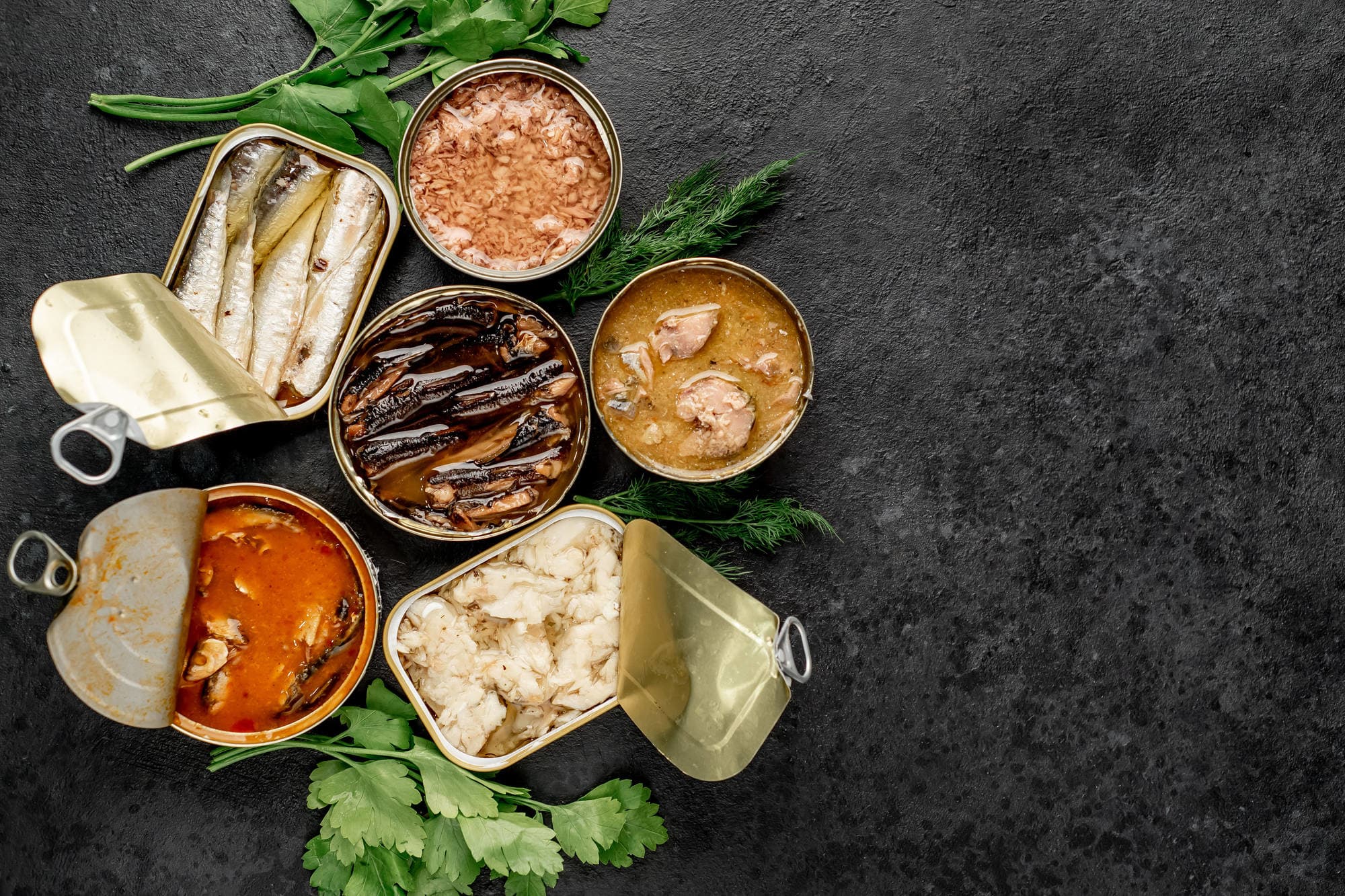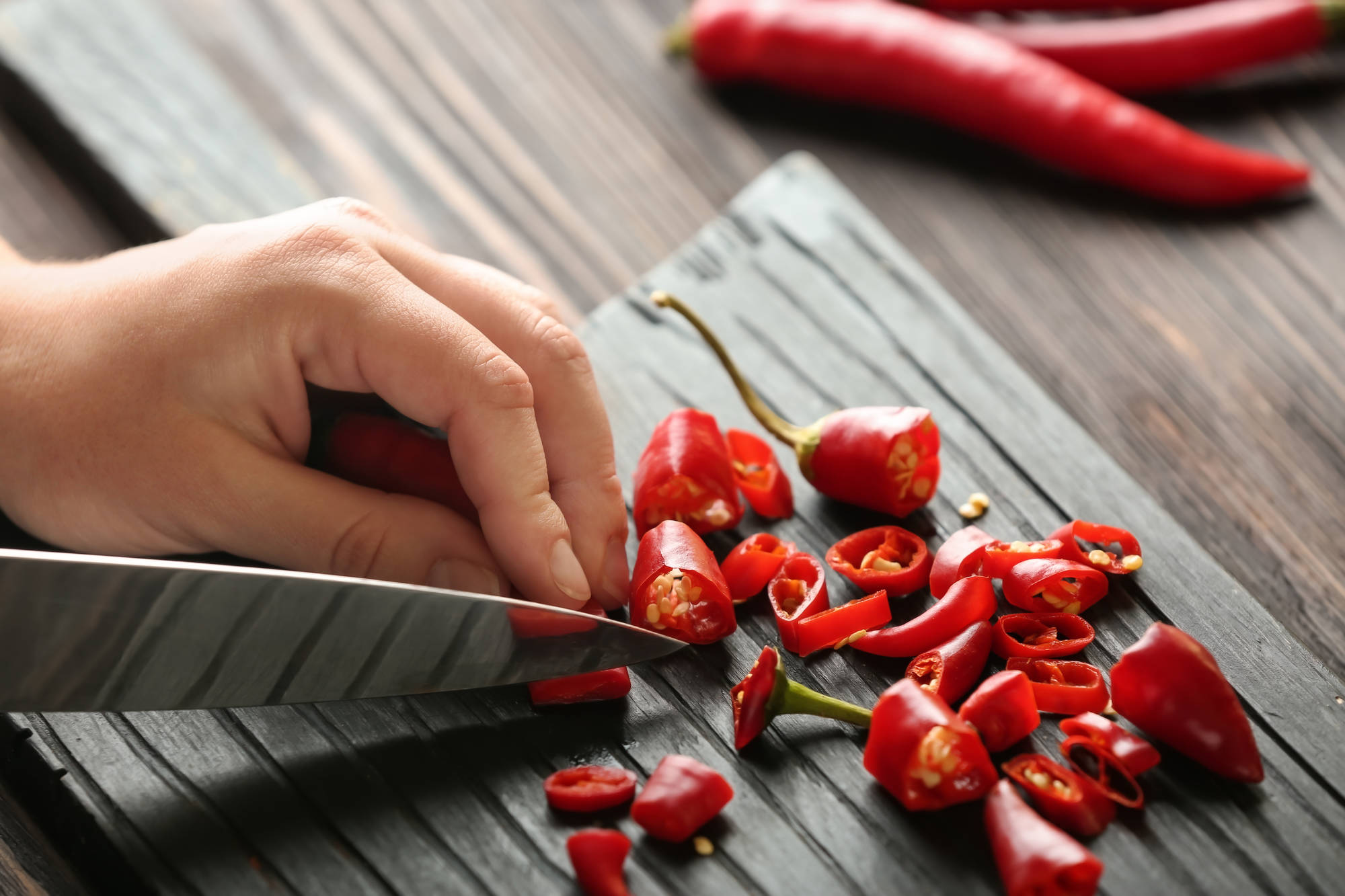For most of the pandemic, bad breath wasn’t much of an issue. People either stayed home or they stayed socially distant, oftentimes while wearing masks. However, as restrictions loosen and people begin interacting in close quarters again, it’s important to pay close attention to mouth health and bad breath (also known as halitosis). That includes avoiding certain foods—and drinks!—in favor of others. Here are 10 foods that cause bad breath and 10 that combat it.

Ihor Bulyhin / Shutterstock.com
Booze on your breath is notoriously difficult to cover up, and there are a few reasons for it. In addition to alcohol just being potent, it’s also a diuretic, which causes your mouth to dry out. Without saliva to wash anything away, the bad-breath bacteria lingers and grows. Additionally, after alcohol is absorbed into the bloodstream, it exits via your lungs, which is why you can smell it hours later. The eventual result of this perfect storm? That terrible morning-after taste in your mouth.

aleksandr talancev / Shutterstock.com
Whether it’s tuna, sardines, anchovies, or some other variety, canned fish is stinky, and it’ll make your breath the same way. The fish begins to oxidize as soon as it’s canned, which leads to the strong scent that stubbornly sticks around.

Fusionstudio / Shutterstock.com
First, cheese is downright stinky. There’s no denying that, as some of the best-tasting cheeses smell atrocious. On top of that, when bacteria breaks down the lactose, lipids, and proteins found in cheese, it creates excess hydrogen sulfide, which is responsible for halitosis.

Svitlana Hulko / Shutterstock.com
Technically a drink, coffee is a must for this list, as almost everyone has experienced close-talking with somebody who has coffee breath. The strange thing is that coffee generally smells good, but not after someone drinks it. The reason is similar to the situation with alcohol: coffee dries out your mouth, allowing bacteria to thrive.

ThamKC / Shutterstock.com
If you think garlic lingers on your breath, it’s not your imagination. Garlic contains two types of sulfur compounds, which enter your bloodstream via your stomach and exit your body via your lungs, meaning you’re literally breathing out garlic well after eating it—up to two days afterward, in fact!

photocrew1 / Shutterstock.com
Allyl isothiocyanate is an organosulfur compound that’s prevalent in horseradish and is responsible for its extremely strong odor. In fact, the evolutionary purpose of the smell is to ward off hungry herbivores in nature. However, allyl isothiocyanate may also have anti-inflammatory and anti-cancer properties, so eat up!

marozau andrei / Shutterstock.com
The eternally awesome rap song “Shake Your Rump” by the Beastie Boys contains the lyrics, “Mike D, yeah? / With your bad self running things / What’s up with your bad breath? / Onion rings.” They’re right about the potency of onions, as they contain similar sulfur compounds as garlic, and thus have a similar effect. The Beasties will never steer you wrong.

Milleflore Images / Shutterstock.com
Ever heard of keto breath? It’s a side effect of a ketogenic diet, a high-protein diet that restricts the intake of carbs so the body instead burns stored fat. Not only do protein-rich foods (like meat, eggs, dairy, and nuts—including peanut butter) create an ammonia-like smell when broken down, but fatty acids break down into ketones, which have a metallic or acetone smell and are expelled partially through exhalation. It’s all harmless, but someone standing close to you might beg to differ.

Pixel-Shot / Shutterstock.com
The spicy taste that stays in your mouth after eating something hot, like a pepper? You’re not imagining it. Peppers can actually leave your tongue temporarily coated with spices, and if you can still taste it, others can still smell it. Milk helps relieve spiciness, but the dairy drink will only exacerbate halitosis.

ESstock / Shutterstock.com
A nice hearty tomato sauce tastes like heaven, but it can be hell on your breath. Bacteria thrive in acidic environments, and on top of that, tomato sauce (and juice) can trigger acid reflux, which only worsens the breath situation.

Sjale / Shutterstock.com
An apple a day can also keep the dentist away, as apples help remove plaque from your teeth, which aids in freshening your breath. Crunching into an apple also encourages the production of saliva, which washes away bacteria that can cause odors.

Elan Havrilyuk / Shutterstock.com
A buildup of bad breath bacteria can cause the formation of methyl mercaptan, an unpleasant gas that smells like rotting cabbage. (Yuck!) The antidote? Cherries, which can combat methyl mercaptan and neutralize the odor.

Africa Studio / Shutterstock.com
Breath mints and gum often come in a cinnamon variety, and there’s some logic behind that flavor choice. Cinnamon contains an essential oil that has antimicrobial and antiseptic properties, and the scent is also pleasant and powerful enough to mask lingering odors. Trying to avoid candy? Chew a cinnamon stick.

Africa Studio / Shutterstock.com
Crunching into carrots, celery, and cucumbers encourages the production of saliva and helps freshen your breath. Chewing them also cleans your teeth, and the high water content helps your breath, your teeth, and your hydration.

Chatham172 / Shutterstock.com
You’ve probably heard of ginger ale alleviating an upset stomach, but did you know ginger, ginger tea, and ginger ale can also neutralize bad breath? The chemical gingerol-6, which gives the root its taste, stimulates enzymes in saliva that help break down the sulfur compounds that cause bad breath.

brickrena / Shutterstock.com
Green tea has antimicrobial properties, which helps fight the root cause of bad breath. Studies also suggest the polyphenol in both green and black teas can reduce bacterial growth by 30% and break down foul-smelling compounds.

mpessaris / Shutterstock.com
One of the oldest ways to improve your breath is by chewing fresh herbs like mint, parsley, basil, rosemary, tarragon, or cardamom. In addition to smelling great, these green herbs contain chlorophyll, which acts as a deodorizer in the battle against bad breath

SpeedKingz / Shutterstock.com
Leafy green vegetables continue to boast a host of benefits, and preventing bad breath is included on that lengthy list. Lettuce, like cherries, is another enemy of methyl mercaptan gas. Meanwhile, spinach is high in zinc, which stops the buildup of sulfur compounds. Other leafy greens can help too, as, like herbs, they contain chlorophyll.
19 of 20
Lemons & oranges

Yulia Grigoryeva / Shutterstock.com
While acidic environments can encourage bacterial growth, the vitamin C in lemons and oranges will keep the nasty bacteria at bay, and promote overall mouth health. The pleasant-smelling citrus fruits also help neutralize unpleasant odors, which is why there are so many lemon-scented and citrus-scented cleaning products.

